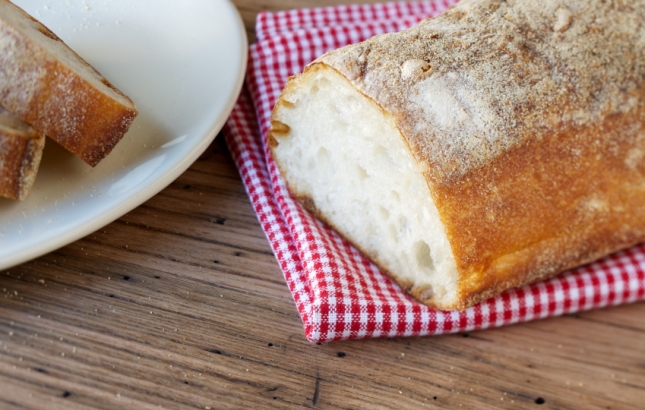
What Exactly is Coeliacs Disease?
“Just how allergic to Gluten ARE you?” asked the delightful waitress at our local Thai restaurant upon request of the Gluten Free menu. It got me thinking. What does this question mean? Am I even allergic to Gluten? Can you be varying degrees of “allergic” to something? How much do the general public, including people like my lovely waitress understand about Gluten and what it is and any associated allergies or intolerances.
“Just how allergic to Gluten ARE you?” asked the delightful waitress at our local Thai restaurant upon request of the Gluten Free menu. It got me thinking. What does this question mean? Am I even allergic to Gluten? Can you be varying degrees of “allergic” to something? How much do the general public, including people like my lovely waitress understand about Gluten and what it is and any associated allergies or intolerances.
Recent posts by Dr Morgan Kelly Edwards
I have Coeliacs disease. I was diagnosed in 2006 after a long run of inconclusive tests, frustrating diet diaries and years of misdiagnoses. Ironically, I identified my own symptoms after a particularly graphically informative lecture in Med School. The fact that an array of doctors had failed to identify the now glaringly obvious (and Coeliac specific) symptoms unsettled me at the time, but I was diagnosed at a time when Coeliacs was much less diagnosed than it is now, and overall I am thankful for the lovely GP across the road from my Med School who listened to my passionate rant and ordered the relevant tests.
Gluten is the natural protein found in many grains, such as barley, wheat, spelt, and rye. Coeliacs Disease is not an allergy to gluten. Instead it is an inflammatory autoimmune disorder of the small intestine. It affects women more than men, and 10% of sufferers will have a first-degree relative who also have the disease. Upon exposure to a group of glycoproteins called prolamins (such as gliadin in wheat), an enzyme called tissue transglutaminase initiates a sequence of events that modifies the prolamin protein and causes an inflammatory reaction in the small intestine (essentially the body attacks the small intestine). This subsequently causes finger-like projections from the lining of the small intestine called villi to shrink and erode, which significantly impairs absorption of a wide range of essential nutrients such as iron, calcium, glucose and vitamins A, D, E and K .
Coeliacs can present for the first time at any age, although peaks in infancy and old age. In infancy Coeliacs typically presents with failure to thrive, developmental delay and even severe malnutrition. Failure to diagnose can lead to a true medical emergency. Earlier symptoms can be very mild and are often considered innocuous. They can include abdominal pain and distension, diarrhoea, weight loss, mouth ulcers, bone pain/osteoporosis/osteopaenia, anaemia and other symptoms of vitamin/mineral deficiency – especially iron, calcium and folic acid. Sufferers frequently also suffer a form of diarrhoea called steatorrhoea which occurs when there is excess fat in faeces causing stools to have a white or light-brown colour, float due to excess lipid (fats), be especially foul-smelling and oily in appearance.
Diagnosis of Coeliacs is through assessment of symptoms, dietary intake and blood tests for antibodies. Whilst the gold standard remains biopsy of the small intestine (done via endoscopy), this is usually reserved for patients in whom there is a very strong suspicion of Coelaics based on blood test results and other factors.
If left untreated, the effects of Coeliacs disease can be devastating. As well as the long reaching health consequences of malabsorption and malnutrition, there is also an increased risk of two types of small bowel cancers (adenocarcinoma and lymphoma). However if the disease is well controlled these risks return to baseline. Currently the only treatment is a completely Gluten Free diet. Gluten is found in a very large range of products, even in those you might consider to be innocent. Often identifying where Gluten is hiding is much more complicated than you might imagine and chefs often have little idea of what “Gluten Free” actually entails. Despite the challenges, I am personally thankful that my chronic disease is controllable without the intervention of a daily tablet or injection, and that there is such an abundance of Gluten free foods available in cafes, markets and food stores, as well as a rich array of delicious recipes and blogs (like this one) to be found online to make the journey easier.
Looking forward to our next talk about health soon, xx Morgan




Great article. My daughter is a Coeliac and it took so long to get an accurate diagnosis for her but now that she avoids gluten she is very healthy (finally) and we have a happy girl again. Thanks again for sharing this great insight, I'm sure many people will appreciate your simple explanation. Kind regards, Joanne